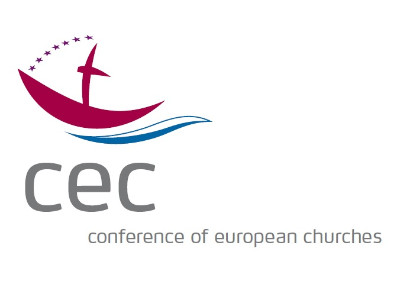European churches express disappointment at EU ministers for not agreeing on search and rescue in the Mediterranean
 Church representatives from across Europe have expressed their disappointment about the failure of EU Ministers of Interior to agree on any arrangement for search and rescue in the Mediterranean at their 18 July meeting in Helsinki. The proposals for a temporary arrangement, which had been tabled by the French and German governments had not found agreement and further discussions were postponed until September.
Church representatives from across Europe have expressed their disappointment about the failure of EU Ministers of Interior to agree on any arrangement for search and rescue in the Mediterranean at their 18 July meeting in Helsinki. The proposals for a temporary arrangement, which had been tabled by the French and German governments had not found agreement and further discussions were postponed until September.
Dr Torsten Moritz, General Secretary of the Churches’ Commission for Migrants in Europe (CCME) expressed dismay in view of the results. “Once again, EU ministers have failed in agreeing on even the most minimal solutions for search and rescue in the Mediterranean. While they talk, people die in desperation at sea,” he said.
“With each one of them, the soul of Europe dies a little bit more. The outcome of the ministerial meeting is a slap in the face of Christians, who believe in the sanctity of life. Churches across Europe will continue their support and involvement in activities in search and rescue of human life – an obligation and certainly not a crime,” added Dr Moritz.
“Christians are very concerned about the fate of their brothers and sisters in humanity, presently in distress at the Mediterranean,” said CEC President Rev. Christian Krieger, adding “the information that the concert plan for humanitarian rescue at sea cannot be achieved is incomprehensible and illustrates how national political issues prevail over human right values.”
Recently in an official letter to the ministers, heads of the CCME, ACT Alliance EU and the Conference of European Churches strongly stressed the need for safe and regular pathways, search and rescue, and fair sharing of responsibility.
These organizations representing Anglican, Orthodox, Protestant and other confessions, as well as specialized Christian ministries across Europe, in their letter, urged the EU Ministers of Justice and Home Affairs to take quick steps to put an end to the deaths at sea.
The church organizations were expecting the recommendations to be considered at the informal Justice and Home Affairs Council meeting that was held from 18 to 19 July in Helsinki.
In their letter, the church organizations asked the EU to set up a search and rescue mission, and stop criminalizing NGOs and others who save lives. They urged the EU to set up an emergency plan for the disembarkation and relocation of those saved at sea, and end cooperation with Libya and any other neighboring states determined unsafe by UNHCR. They further called on the EU to create legal migration routes and arrange evacuation of migrants and refugees from Libya.
“As Churches and Christian organizations, we are convinced that God has created each human being in his image and granted him/her the right to a dignified life,” read the letter.
“We therefore believe that it is our responsibility and the responsibility of governments to promote, respect and protect the sanctity, dignity and the right to life of every person regardless of their national, ethnic, gender background and to seek the best humanitarian and rights based solutions for people especially under difficult conditions,” they added.
Churches, for example in Italy, had in the past stepped in after successful rescue operations and offered reception places for those rescued.
